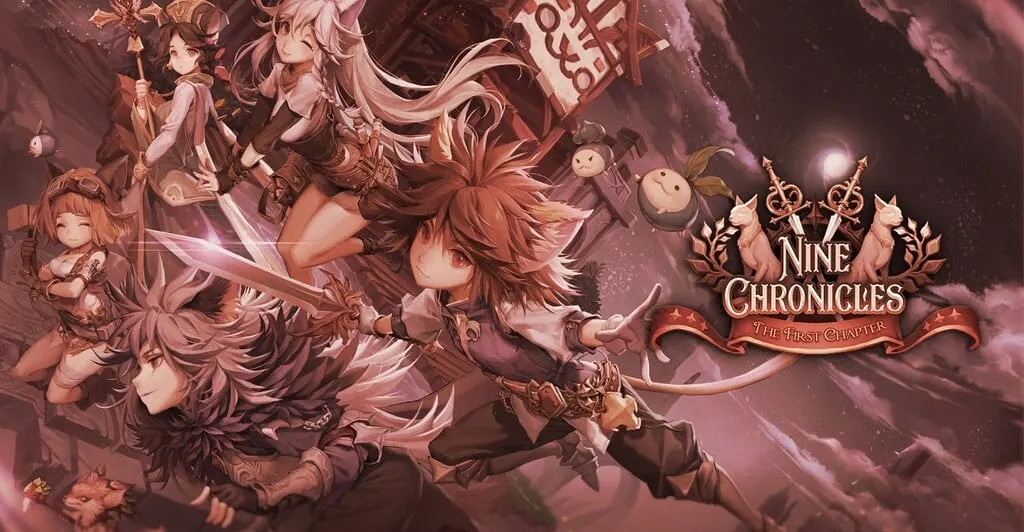In brief
- Planetarium has launched a grant fund to support community development of its blockchain-driven role-playing game, Nine Chronicles.
- The open-source game can be freely modified and “forked” into different experiences.
- A total of $2.5 million in funds will be awarded to community developers who create tools and content for the game.
For many crypto games, blockchain technology enables the unique hook of true ownership of verifiably rare in-game items, be it trading cards, creatures, or parcels of land. Nine Chronicles, a fantasy role-playing game developed by startup Planetarium and backed by major publisher Ubisoft, offers a different kind of hook: the ability to freely mod and transform the game and publish it as a separate “fork” independent from the original experience.
Today, Planetarium announced that Nine Chronicles is now fully open source, letting users go wild with all of the code and assets to develop their own distinctive takes on the game. And to encourage just that, the Seoul-based studio has established a $2.5 million grant fund to reward top creators. All content in the PC game, from the artwork to the code, can be used by the community to create their own experiences, whether they are similar to the core Nine Chronicles game or significantly different in approach.
Unlike a traditional massively multiplayer online role-playing game (MMORPG) like World of Warcraft (WoW), Nine Chronicles is a fully peer-to-peer experience and does not rely on a centralized server to function. Should Planetarium ever shut down, the game can live on through the many forked versions created by the community. Nine Chronicles is a very different kind of game from WoW in look and feel, however, thanks to its 2D artwork and idle, side-scrolling combat that sees your hero eagerly pummel all oncoming foes.
Nine Chronicles has also seen support from a major gaming industry ally in the form of Ubisoft, the massive traditional publisher behind such hits as Assassin’s Creed, Just Dance, and Tom Clancy’s Rainbow Six. Planetarium, Ubisoft, and startup accelerator Hashed formed an advisory partnership last year, and Planetarium CEO Kijun Seo said that Ubisoft has provided guidance on aspects such as infrastructure and company strategy as the crypto developer attempts to scale Nine Chronicles to reach more players.
“Ubisoft has been very supportive about our goal of empowering players with serverless, open-source gaming,” Seo told Decrypt. “Since decentralized gaming is still in the early stage, we're constantly discovering and sharing new patterns of growth. We're excited to find out where our games and users will lead us.”
Planetarium will award funds in the form of in-game Nine Chronicles gold (NCG) currency, fiat currency, and in-game items on a case-by-case basis depending on the scope and impact of each respective community project. This applies to both existing projects and those still to be proposed, with Planetarium already posting a wish list of potential tools that it hopes to see developed, such as a block explorer with a game-like interface.
“There have been open-source games before Nine Chronicles, but not many with an in-game economy to reward the contributors of the ecosystem,” said Seo. “Many creators contribute hundreds of hours to their passion projects, yet do not reap the benefit when their creation becomes successful. A tokenized economy gives us a way to share the potential of Nine Chronicles with those who play a part in its success.”
According to Seo, there’s only so much content and tools that his team can create and implement in-house while supporting the game. He believes that the grant fund will enable a “virtuous cycle” that encourages the community to continue developing new features and experiences around Nine Chronicles. “We believe mods and creations will lead to better user experience, expanded content, better market dynamics, and a chance for explosive growth,” he added.
User-created modifications are part and parcel with many traditional PC games, and whether it’s Quake, The Elder Scrolls V: Skyrim, or Rocket League, and it’s often a small but passionate subset of players who really get invested in playing and creating mods. In very rare cases, player-created mods become popular enough to be developed into full-fledged games, as has happened with smash hit games like Team Fortress, Dota 2, and PlayerUnknown’s Battlegrounds (PUBG).
Developers may allow for modifications for traditional PC games, but they’re typically not considered a part of the core game experience. For Nine Chronicles, however, it’s a key selling point: this is a game designed from the start to encourage modified fan games, and now Planetarium is incentivizing community development.
The free-to-play Nine Chronicles launched in October 2020 via the game’s own website, and Planetarium has also announced plans to bring it to the popular Steam PC games marketplace, as well as to mobile platforms.
Blockchain-based games have drawn increased attention recently through the sale of high-priced in-game items as non-fungible tokens (NFTs), as seen in leading games such as fantasy soccer game Sorare, creature-battler Axie Infinity, and open-world creation game The Sandbox. However, DappRadar data suggests that the crypto games it tracks typically have monthly active user counts in the low thousands, which is a fraction of the kind of audience that top non-crypto PC games draw today.
It’s not clear how popular Nine Chronicles has been thus far, but the “forkable” fantasy RPG premise is unique. Between that, backing from gaming giant Ubisoft, and now $2.5 million in grants available to modders, it will be interesting to see whether it can grow to become one of the leading blockchain-based games.

